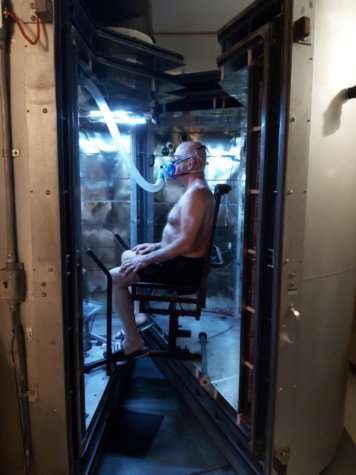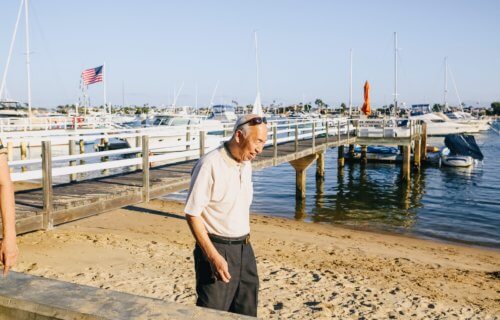OTTAWA, Ontario — It’s common sense for the elderly to avoid extreme temperatures on either end of the thermometer. Now, however, a new study finds older adults should take particular care to cool down on hot days. Why? Researchers say taking a break from extreme heat, by taking a dip in the pool for example, appears to help human cells protect themselves from harm.
In more scientific terms, cooling down supports cell autophagy. This is the process by which cells destroy dangerous protein buildups due to stressors including, but not limited to, extreme heat.
“By lessening the time spent in a state of elevated internal body temperature, cooling centers may help to preserve autophagy in older adults, which may translate to greater cellular protection and improved health outcomes during an extreme heat event,” says first study author James J. McCormick, PhD, a postdoctoral fellow at the Human and Environmental Physiology Research Unit at the University of Ottawa in Canada, in a media release.
Prolonged exposure to high temperatures can cause various health emergencies, including kidney failure, heat stroke, and other cardiovascular issues. Of course, like so much else in life, the elderly are more at risk than younger adults.
Your cells love to ‘chill’ out

For decades, it’s been common for local authorities to advise residents without access to air conditioning to visit a “cooled location” for at least a few hours per day during heat waves. Interestingly, study authors point out that this work is the first to actually assess how a “cooling down period” impacts the human body’s physiological processes.
“With climate change, the global population is increasingly exposed to protracted periods of extreme heat,” says doctoral candidate Robert Meade. “Prolonged exposure to hot temperatures can overwhelm the body’s ability to cool itself, particularly in older adults. Thus, there is a crucial need to develop evidence-based guidance for protecting older adults from extreme heat.”
In all, researchers exposed a group of 17 older volunteers to a simulated heat wave. All 17 of those individuals spent nine hours in a room heated up to 104 degrees Fahrenheit! However, seven participants received to a two-hour break in a room cooled down to 73 degrees F.
No participant showed any significant changes in body temperature after cooling down. Those who were able to chill out however, did show improved indications of autophagic function in comparison to the others.
The team is presenting their findings at Experimental Biology (EB) 2021, a virtual meeting of the American Physiological Society.
